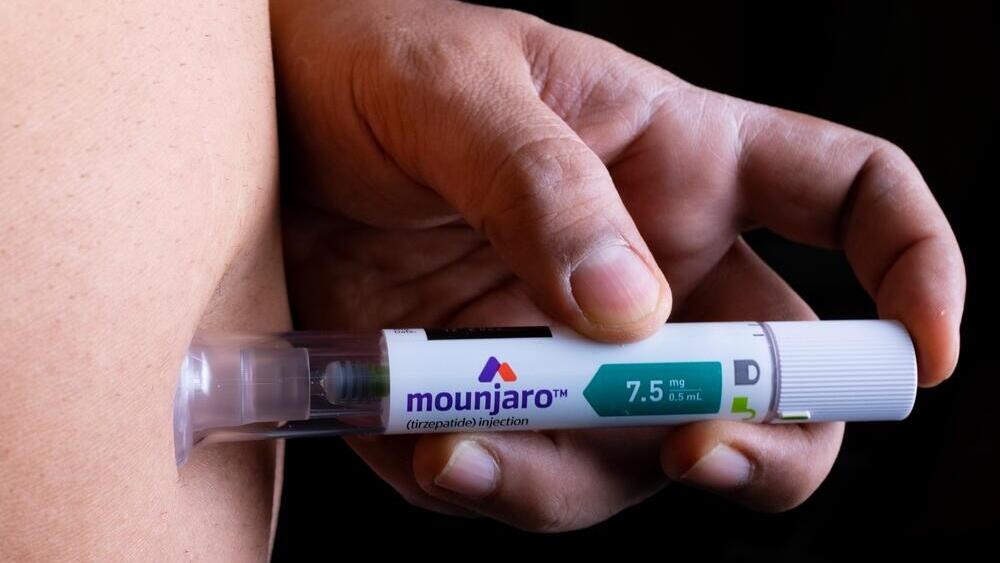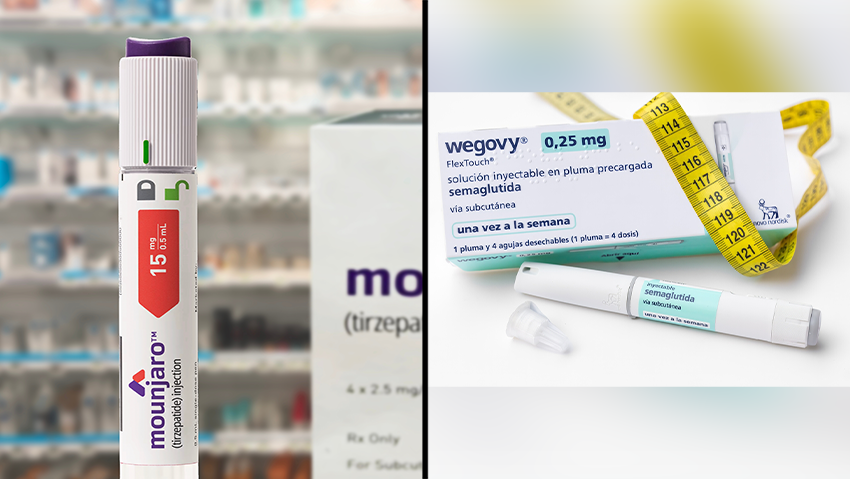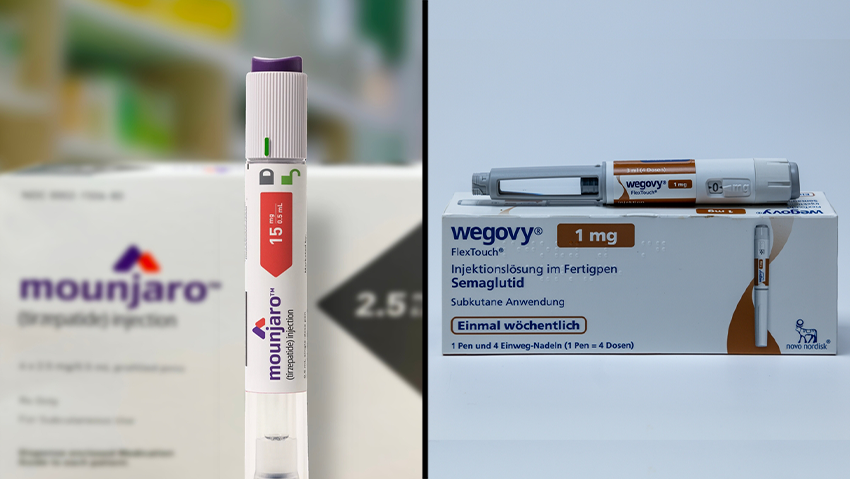Patients who took the weight-loss injection Zepbound—marketed in Israel as Mounjaro—lost nearly 50% more weight than those who used the competing drug Wegovy, according to a new study published Monday in the New England Journal of Medicine. The trial, funded by Eli Lilly, is the first to directly compare the two blockbuster drugs.
Participants who received Mounjaro (tirzepatide) lost an average of 22.8 kg (50.3 lb) over 72 weeks, compared to 15 kg (33 lb) among those on Wegovy (semaglutide). Both drugs mimic gut and brain hormones that regulate appetite and satiety, but Mounjaro targets two hormones—GLP-1 and GIP—while Wegovy, developed by Novo Nordisk, targets only GLP-1.
"Combining both mechanisms may result in greater weight loss," said Dr. Louis J. Aronne, director of the Comprehensive Weight Control Center at Weill Cornell Medicine, who led the study.
He presented the findings Sunday at the 32nd European Congress on Obesity (ECO) in Málaga, Spain. "Thanks to recent advances in obesity medications, patients and doctors are seeing weight-loss outcomes never before possible," Aronne added.
In what Aronne described as a "race of effectiveness," Mounjaro delivered stronger results across multiple benchmarks. The trial involved 751 overweight or obese adults in the U.S. with at least one weight-related health issue, excluding diabetes. Participants received weekly injections of the highest tolerated doses: Mounjaro (10 or 15 mg) or Wegovy (1.7 or 2.4 mg).
At the end of the trial, Mounjaro users lost 20.2% of their body weight on average, compared to 13.7% for those on Wegovy. Mounjaro users also reduced waist circumference by 18.4 cm (7.2 in), compared to 13 cm (5.1 in) for Wegovy. Nearly 32% of Mounjaro users lost at least a quarter of their body weight, compared to about 16% of Wegovy users.
Weight loss was approximately 6% lower in men than in women in both groups, the researchers noted. Greater weight loss correlated with improvements in key health markers such as blood pressure, blood sugar and cholesterol levels.
Over three-quarters of participants in both groups reported at least one side effect, mostly mild to moderate gastrointestinal issues like nausea, constipation, diarrhea or vomiting. About 6% of Mounjaro users dropped out of the study due to side effects, compared to 8% of Wegovy users.
Get the Ynetnews app on your smartphone: Google Play: https://bit.ly/4eJ37pE | Apple App Store: https://bit.ly/3ZL7iNv
GLP-1 drugs have surged in popularity. A 2024 KFF survey found that one in eight U.S. adults reports using them. Mounjaro generated $4.9 billion in global sales last year. Wegovy, which entered the market earlier, brought in nearly $8.8 billion.
Both Eli Lilly and Novo Nordisk have faced mounting criticism in the U.S. over the high cost of their drugs. They've recently launched programs to reduce patient costs to around $500 per month or less, depending on dosage.
In Israel, access to these medications has also improved, though they are not yet included in the national health basket. At the start of this year, all four major health funds launched programs offering a 50% discount via supplemental insurance, contingent on eligibility.
To qualify, patients must have a BMI over 30 (obesity) or over 27 (overweight) with an additional risk factor such as weight-related illness. Wegovy is also subsidized for adolescents aged 12–17 with obesity, a minimum weight of 60 kg (132 lb), a BMI at or above the 95th percentile and a related health condition.
Health funds stress that weight-loss drugs are intended as part of a broader obesity treatment plan. Patients must commit to additional measures such as regular weigh-ins at clinics, enrollment in support programs, sessions with dietitians, participation in obesity workshops and follow-up appointments.
Eli Lilly welcomed the study’s results. “In the SURMOUNT-5 trial, Mounjaro showed significantly greater weight loss than Wegovy across all comparisons,” said Dr. Leonard Glass, Eli Lilly’s senior vice president for global medical affairs.
“These data confirm Mounjaro as a leading treatment option for people living with obesity and provide healthcare professionals with critical insights for making informed treatment decisions.”
Novo Nordisk pushed back, questioning the study's methodology. The company noted that the weight loss seen in the new trial was lower than results from its own STEP-1 study, in which Wegovy users lost an average of 17% of their body weight, with one in three losing at least 20%.
“Obesity is more than just a number on the scale,” the company said. “Wegovy is the only GLP-1 drug for obesity approved to reduce the risk of major cardiovascular events, including cardiovascular death, heart attack and stroke.”
Novo Nordisk also pointed to promising results from ongoing research on higher doses of Wegovy (subcutaneous semaglutide, 7.2 mg). In the STEP UP trial, participants lost 20.7% of their body weight, with one-third losing at least 25% and reported fewer digestive side effects. The company plans to apply for European Medicines Agency (EMA) approval in the second half of the year.




